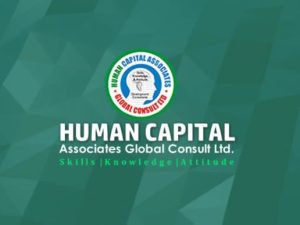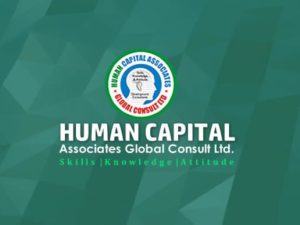Technical Report Writing Skills for Oil & Gas Industry
August 26 – 30, 2024
Venue: CHAK Guest House & Conference Centre,
Km 8, Musa Gitau Road off Waiyaki Highway,
New Lavington Area, Nairobi, Kenya
Course Fee: $3,500 per Participant
Program Overview:
The need to translate complex findings, analysis and recommendations for effective decision-making during projects, maintenance, turnarounds, construction or operations makes technical writing skill a must for every technical manager or engineer. Therefore, effective communication by reporting within a company and also externally to clients can lead to substantial cost savings and avoid legal and contractual problems when information is conveyed clearly, accurately and reporting is done properly.
Writing for work-related purposes ought to be brief, clear, informative and, above all, readable. In this practical hands-on course, participants will gain a solid foundation in technical writing skills.
Examples and exercises will provide participants with hands-on experience. You may choose to bring a sample of your technical writing for one-on-one feedback.
For Whom:
This program is designed for Managers, engineers, executives and technicians who need to write, edit, or evaluate technical documents and proposals that are clear, concise, and professional relating reports, procedures and test results in the Oil & Gas industry
Learning Objectives:
At the end of the program, participants will be able to:
- focus on the reader as the receiver of the information;
- develop quality writing that will improve business relationships and communication;
- structure and write technical documents that are precise, clear, and concise;
- create meaningful content that can be understood and used by clients or management;
- persuade readers, clients and company management to accept or act on your proposals or reports;
- instruct readers, subordinates and direct reports to accurately follow your procedures;
- review sample reports for project management, maintenance and repair, inspection and construction activities; and
- identify and avoid common pitfalls in technical report writing.
Course Outline:
Day 1: Understanding the fundamentals of Technical Writing
- Why technical Writing?
- attributes of a good technical writing
- Purposes of technical writing
- Benefits of technical writing
- Aspects of technical writing – content, form and style, clarity, and language
- Types of writing
- The offshore Oil / Gas Industry – its special needs
- Preparation, audience general format
- Aims, objectives, style
- Information handling techniques
- Appearance
- Format
- Drafting and Planning
- Purpose of research and accuracy
- Organizing information
- Time management in Technical Report Writing
- Class Exercise: Types and samples of reports for:
– HSE reporting
– Project management
– Inspection activities
– Maintenance and repair activities
– Operations and production activities
– Design and engineering activities
Day 2: Content, Form and Style of Technical Writing in Oil & Industry
- How to create meaning out of data
- How to design a high-quality technical document
- Create an outline
- Generate ideas
- Structure for effectiveness
- Class exercise: Review the content of HSE reporting requirements of a maintenance contract,
draft 2 reports, and share with your group
- Form of Technical Writing
- Types of technical documents
- Typography and layout of documents
- How form influences perception of your technical document
- Employing good practices of grammar and punctuation
Exercise: Role-play a copy editor
- Style of Technical Writing
- Six goals of Technical Writing
- Being precise clear, forthright, familiar, concise and fluid
- Organization of a Technical Document
- The beginning of a document
- The middle of a document
- The ending of a document
- Group exercise: Prepare an inspection, maintenance or repair report as per your client requirements
Day 3: Elements of Style
- Word choice, Accuracy and Courtesy
- Sentence structure
- Understanding jargon
- Be Clear. Be Concise. Be correct
- How to engage the reader
- ‘Wordiness’
- Consistency
- References, Journals and Papers
- Key Features of a Good Technical Report and how to write it
- Quick and easy form of communication
- Design for selective reading
- Use figures and diagrams to convey data
- Tables and figures
- Graphics and Illustrations
- Reasons for using illustrations
- Advantages and disadvantages of different types of illustrations
- How to handle technical terms, charts, diagrams, tables
- Kinds of graphics and their messages
Class Exercise – Case Studies of Technical Reports on Maintenance Contract
Day 4: Writing the Report
- Incident reports
- Survey and Technical papers
- Engineering Reports
- Investigation reports
- Expert Reports
- Site Visit Report
- Updates
- Laboratory Report
- Discussion Reports
- Results Report
- Observation Reports
- Conference Reports
- Experimental Reports
- Assessment and condition reports
Day 5: Presentation Skills
Presenting your Technical Report
- Delivering with Passion
- Beginning with Impact
- Breathing effectively
- Holding Attention
- Volume, speed, and pitch
- Building Rapport
- Handling Questions
- Using notes effectively
- Projection, Slides, Pitch, Rate and Gesture
- Exercise – Submission and Assessment of full Technical Reports from participants
The Course Package: Includes: Course material in soft copy, Tea break, Lunch, City tour, and certificate of attendance. A laptop with the soft copy of the course material loaded with a carrying bag will be presented to the participants at the end of the course.
Note: Payment is either U$D or the prevailing parallel market rate. We do not accept government official rate.
Training Methodology
- Methodology: Lectures, discussions, exercises, case studies, audio-visual aids will be used to reinforce these teaching/learning methods
For bookings and inquiries, call: +234-8051365946, +234-7087578814 (Office Lines)
24/7 Lines: +234-8068933608, +234-8029170491 & +234-8145745664 & +234-9112830607
Or send us an email: info@hcaglobalconsult.com or hcaglobalconsult@gmail.com
Related Courses




